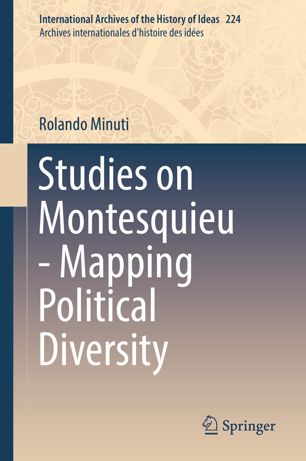

Most ebook files are in PDF format, so you can easily read them using various software such as Foxit Reader or directly on the Google Chrome browser.
Some ebook files are released by publishers in other formats such as .awz, .mobi, .epub, .fb2, etc. You may need to install specific software to read these formats on mobile/PC, such as Calibre.
Please read the tutorial at this link: https://ebookbell.com/faq
We offer FREE conversion to the popular formats you request; however, this may take some time. Therefore, right after payment, please email us, and we will try to provide the service as quickly as possible.
For some exceptional file formats or broken links (if any), please refrain from opening any disputes. Instead, email us first, and we will try to assist within a maximum of 6 hours.
EbookBell Team

0.0
0 reviewsThis volume studies a fundamental element of Montesquieu’s argumentative architecture that is most apparent in his De l’Esprit des Lois: the problem of giving order to, and establishing a network of consistent explanations of political, social and cultural diversity. Following a thorough and careful analysis of his writings, the volume approaches this subject by observing the use of the information sources available to Montesquieu, the relationships between them, and the judgments he expresses. The book examines some of Montesquieu’s essential theoretical contributions, such as the idea of despotism, and the connection between politics, society and religion, on the basis of his reflections on the variety of mainly non-European societies and cultures. It demonstrates a number of possible inconsistencies and unresolved questions in Montesquieu’s argumentation. One of the main subjects of the book is the consideration of geographical context as an essential element for elaborating uniform criteria of political analysis. The book collects contributions concerning Montesquieu’s reflections on China, Tartary, Japan, India, America, Russia, and the Islamic world, and, building on this earlier research, it shows the importance of Montesquieu’s thought and explains the reason for his longstanding influence.